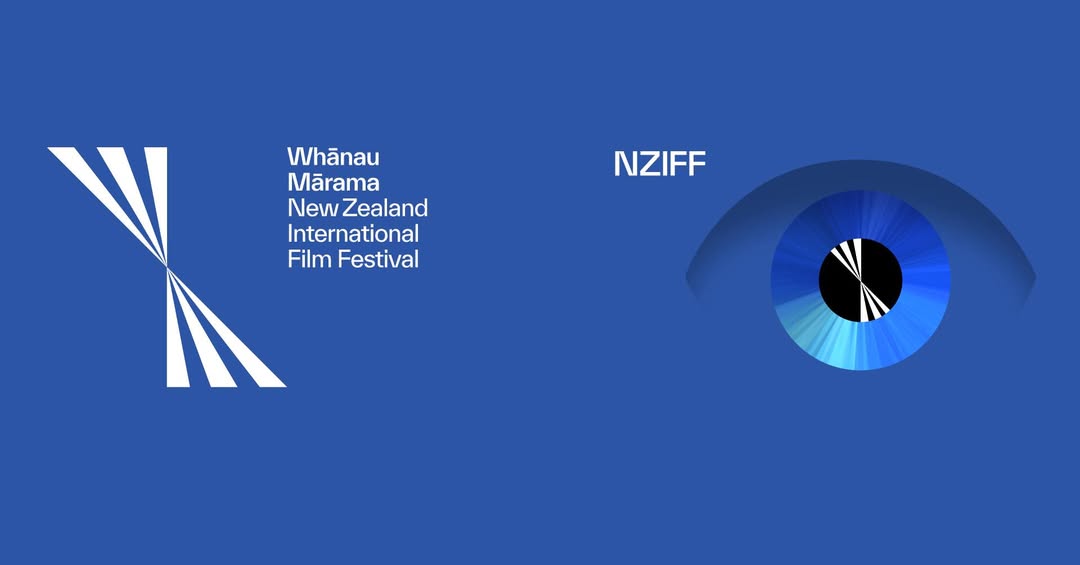It’s the New Zealand International Film Festival, reviewed, responded to and recapped by you, the bad apple community. To submit an addition to this feed, please email damien@badapple.gay with your short review or response to any film showing in any location in the NZIFF. Think of it as your queer, NZ, Letterboxd alternative just for the festival! Someone already reviewed your film, but you wanna add your two cents? We welcome additions, replies and rebuttals.
Films are sorted alphabetically by title, and reviews are posted sequentially from when we receive them!
Angel’s Egg (1985)
Directed by Mamoru Oshii
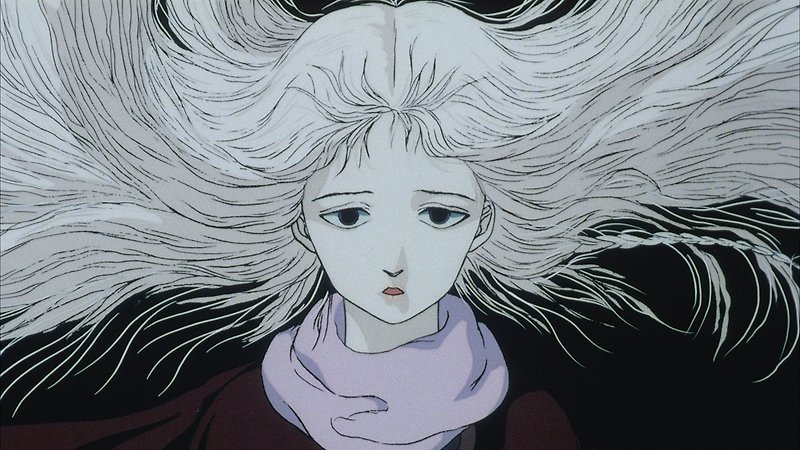
I’d never seen this before and was surprised to find it so austere and uninviting, yet my screening was patronised by many who clearly felt warm toward it, welcomed in to it. I struggled in almost every way it’s conceivable to struggle with a movie yet still found myself inspired by much of its imagery—a hand grasping and ungrasping, tree rooting a person as hair…..
Josiah Morgan
Blue Moon (2025)
Directed by Richard Linklater
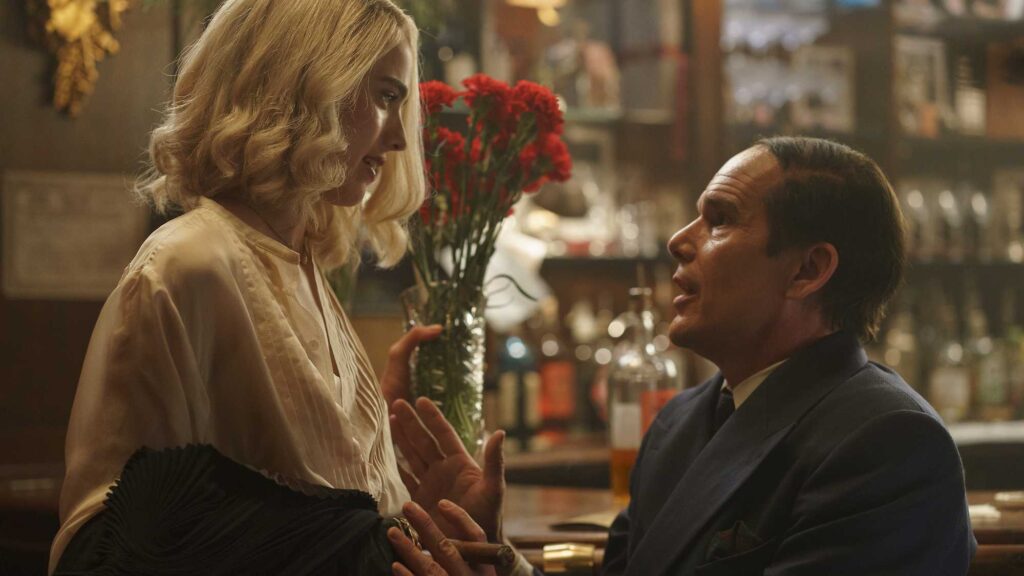
Richard Linklater, the Daddest filmmaker ever, makes a film that sounds like it’s for nerds yet actually plays like a truly Dad film. If movies still exist in twenty years, you know some poor thirteen year old is going to be forced to watch this while his Dad goes “look, look how great Ethan Hawke is!” By then gender politics might even have changed enough that this one’s a total write off.
Josiah Morgan
Cactus Pears (2025)
Directed by Rohan Parashuram Kanawade
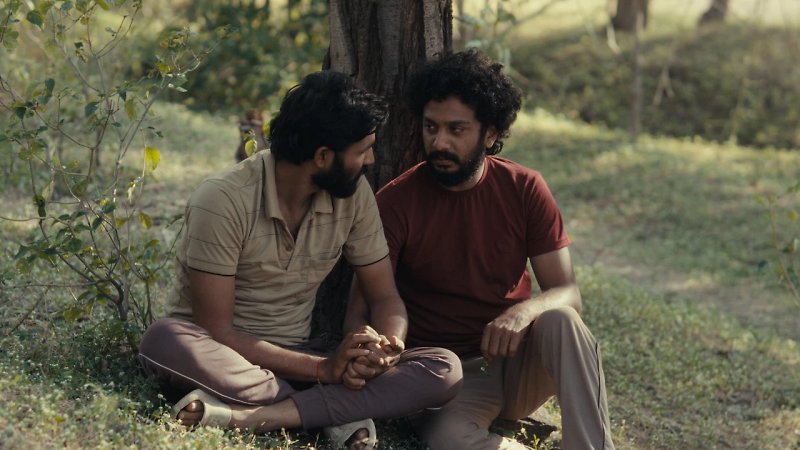
Cactus Pears would be most easily described as an understated movie. It’s literally quiet, with no score being deployed for the majority of the film. This reserve is used to great effect when the film does push across unspoken boundaries; you feel it all the more when the protagonist’s isolation is interrupted, or a scene becomes louder. Above all, it’s a phenomenally tactile movie, in the sense that there are moments of touch so lovingly rendered you can almost feel them yourself.
Malory Campbell
Deaf (2025)
Directed by Eva Libertad
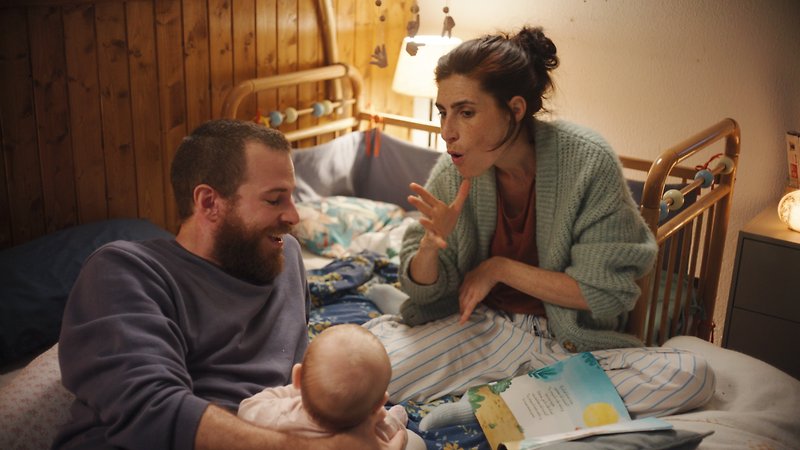
An empathetic story about the spectrum of experiences and emotions when living in a world that is not made for you and seen in the context of Angela, a deaf woman’s pregnancy and motherhood ,and how this presents from socially to medically. Deaf shows a lot of the frustration and isolation that comes from this but also the importance of community, solidarity in communities, and connection. The final act uses sound in a way that helps carry the messaging home and add to Miriam Garlo’s great performance as Angela (this story is inspired by her own experiences) while being directed by her sister, Eva Libertad. I wonder who’s the eldest sister?
Zianna Ruiha
Eddington (2025)
Directed by Ari Aster
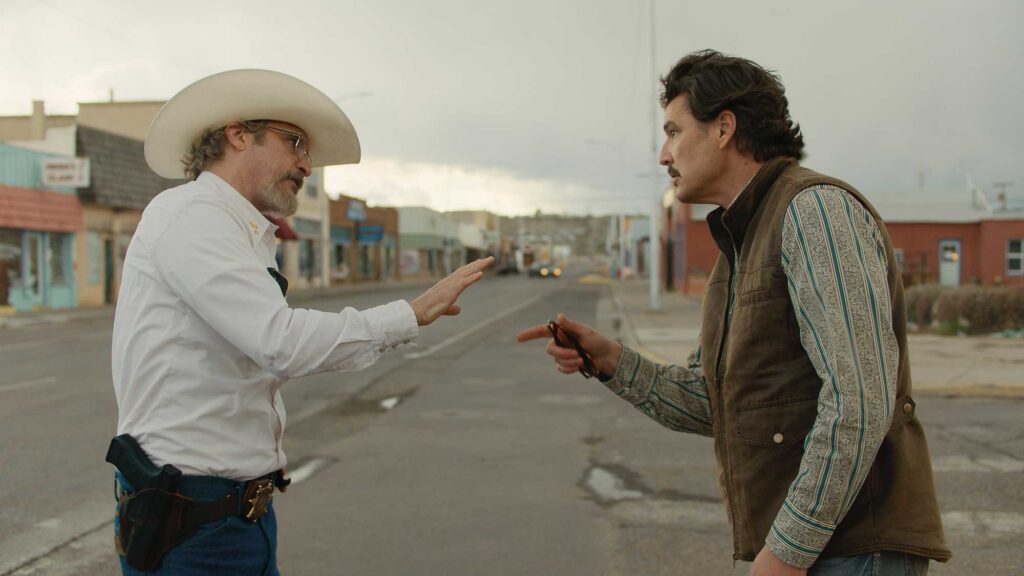
Ari Aster, the most annoying guy you know, returns with his fourth movie in a row in which he makes some pretty good points, actually, no matter how annoying those points may seem. Joaquin Phoenix, the most annoying actor you know, turns in yet another masterful performance and carries the movie on his shoulders. For some reason Emma Stone is in this, too.
Josiah Morgan
“I admire this film more than I enjoy it” should be the common sentiment around this film, whether your Letterboxd score is a ½ star or a 3 and a ½. I gave the film the latter score as I feel this film is not as compact as Aster’s other work, but again, I admire its ambitions. If this film’s ‘politics’ deter you, it could be you the film is making fun of. Making a film about one of the most divisive times in recent history, the 2020 pandemic and mainstream resurgence of Black Lives Matter, is not a film you will always feel comfortable watching, but it will keep you engaged even if it feels a little lost at times. I am very glad a film like this exists, but I do not know if it will be as beloved as the rest of Aster’s incredible filmography—at least not now.
Jordan Irvine
Enzo (2025)
Directed by Laurent Cantet, Robin Campillo
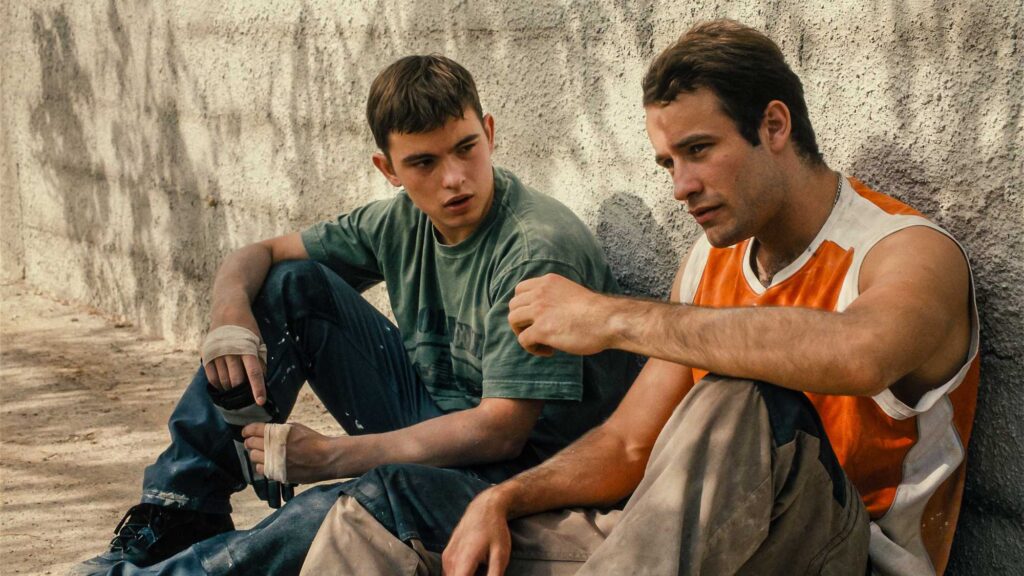
First love is clumsy and messy in this queer coming of age film, one that can be added to the canon of queer films with age gaps. While Enzo has a strong ensemble and is beautifully shot and tender, it doesn’t offer much. It’s a lukewarm flick and the least memorable film I’ve seen at this year’s festival.
Zianna Ruiha
Happyend (2025)
Directed by Neo Sora
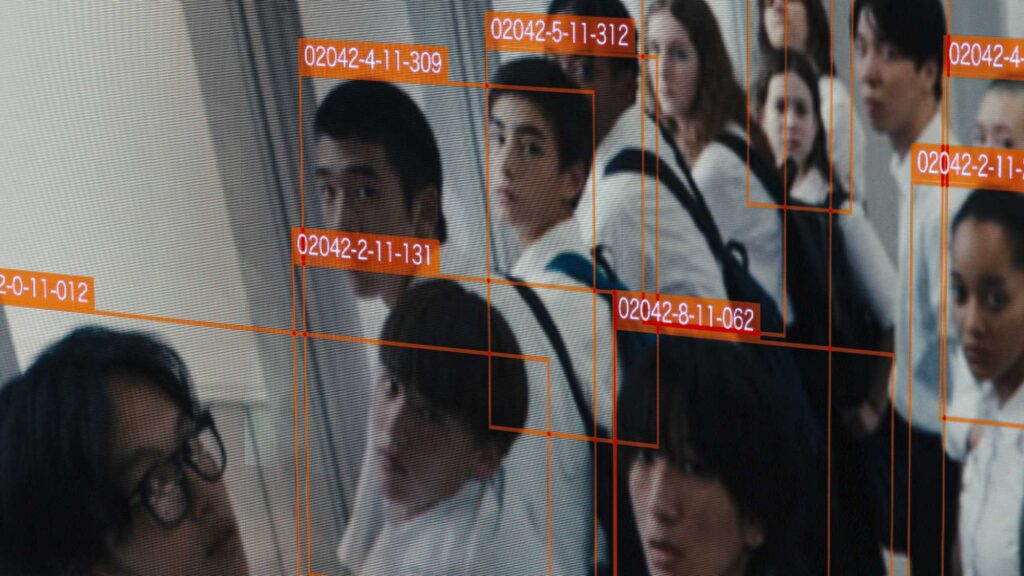
Genuinely really loved this film. While there’s critiques to be had about it’s limited scope in portraying its core themes on a societal scale, I felt the currents running through the film can clearly be extropolated out.
Although it is essentially a coming of age film, it feels like a strong political statement in the face of a changing Japan. This near future is not far off—one where the children of the migrant workforce are faced with increasing discrimination and the almighty weight of Japanese conformity presses down on everyone.
How does one exist under this oppression? How does one become an ally to the disenfranchised? How does one deal with the divirging paths of a long-held friendship?
Also the music fucking bangs.
Damien Levi
Homebound (2025)
Directed by Neeraj Ghaywan
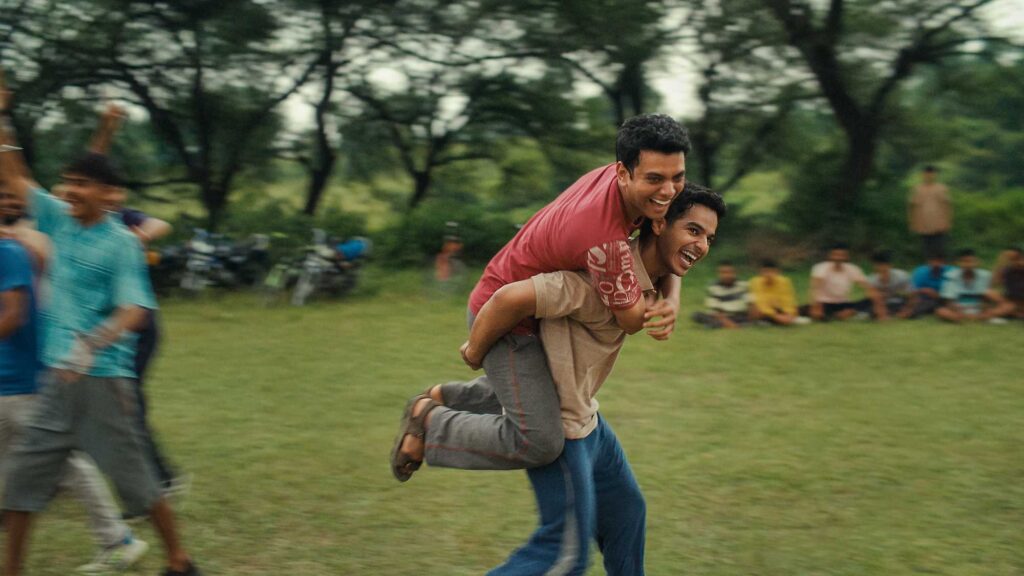
Homebound is an exploration of caste, religion, gender and how these intersect as oppressive forces in modern India. It’s a beautiful but devastating film, with gorgeous cinematography and brilliant performances, especially Ishaan Khatter’s. The friendship between Chandan and Shoaib is the heart of this film and it is told so earnestly and convincingly. At one point in the third act I had to bite my tongue so I wouldn’t audibly sob.
Cinema vibes were terrible though, the woman on my left had two calls during the film, was clearly sick (coughing and blowing her nose) with no mask on and the woman on my right spent most of the film texting with sound on, so our row would always know she had been texted back, in case we forgot.
Zianna Ruiha
It Was Just an Accident (2025)
Directed by Jafar Panahi
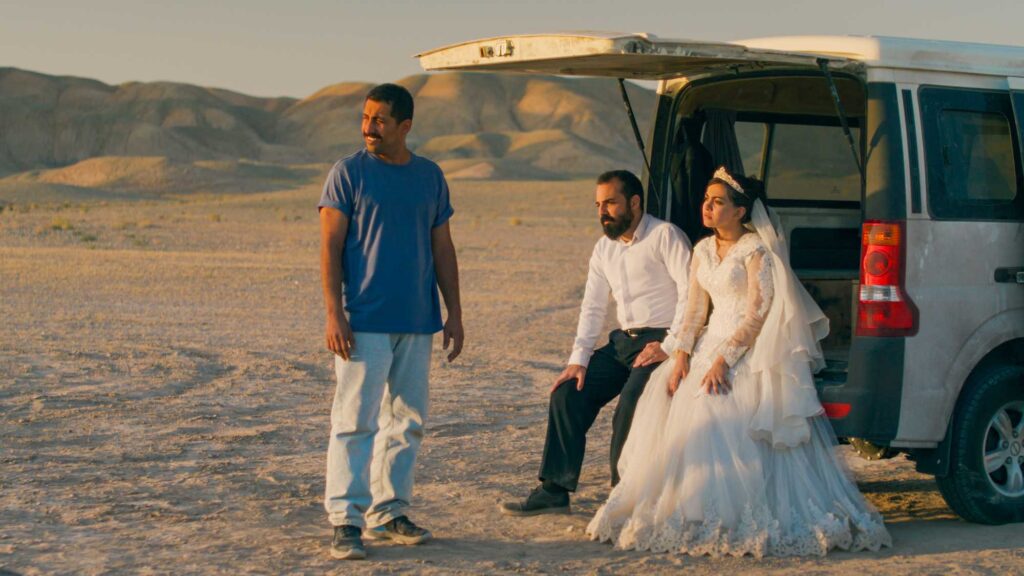
Jafar Panahi’s deserving Palme D’or winner swerves from tone to tone with a sort of rigid control. I was on board with every individual scene but came away with the overwhelming impression of a film that was too tightly wound, that didn’t have enough room to breathe.
Josiah Morgan
The only issue I had with this film was I had to hear Dunedin mayor Jules Radich speak beforehand. Elections are soon and my only requirement is being a good public speaker so when I keep going to these events it does not put me in a sour mood before seeing one of the best films of the year.
Jordan Irvine
I was not expecting the tonal shifts here that Jafar Panahi pulls off here, that ending is such a sickening descent into terror and doom. The final shot might visually look ‘calm’ but it is anything but and Panahi makes us feel that doom with sound alone, it’s clever and haunting. A strong cast but Mariam Afshari was the standout to me.
Unfortunately, it was hard to stay immersed at times as several phones went off with calls and alarms. A first for me was one woman having the audacity to answer the phone, stay in her seat and speak at normal volume for a solid two minute conversation.
Zianna Ruiha
Life in One Chord (2025)
Directed by Margaret Gordon
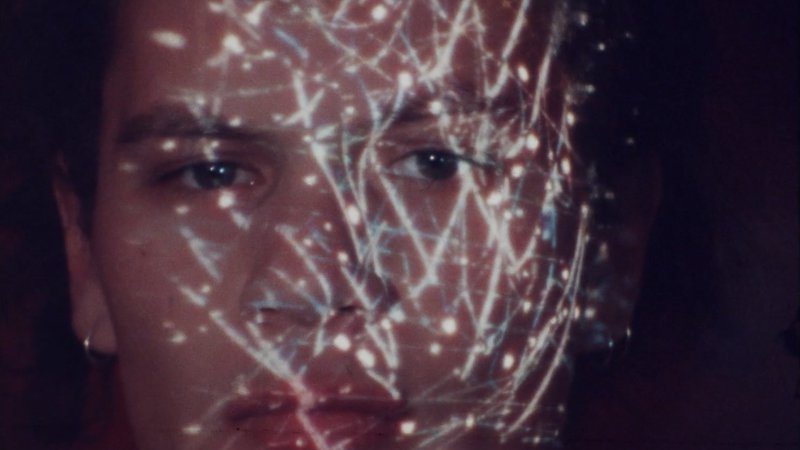
I already knew this was going to be special for me. As a lifelong Dunedin-ite, Shayne Carter and his music run in my veins—as does the rest of the music from the Dunedin Sound era. I mistook five people for Zane Lowe and nearly cried throughout the entire documentary. Dunedin is a cold pit, but it has a warmth somewhere within its people.
Jordan Irvine
Little Trouble Girls (2025)
Directed by Urška Djukić
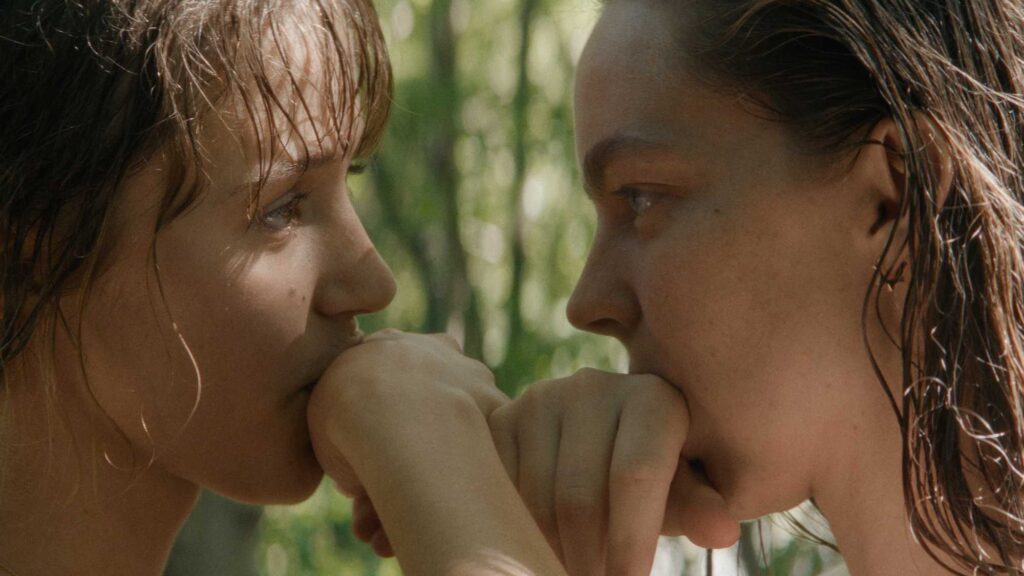
A Catholic girls’ choir staying at a convent is the backdrop for Urška Djukić’s sapphic coming-of-age directorial debut. Lucia’s coming-of-age is seen through her exploration of her sexuality and queerness and the film does a great job of showing how deep and complicated that repression is for Lucia, and also how Ana-Maria ‘hides’ and ‘justifies’ her queerness. It’s a bittersweet film, making your heart break for both girls, but ends with a great callback in its final scene, showing acceptance of oneself and that queerness and sexual expression is not a sin. This one is for the wlw girls, especially the ones who have been the casualty of a teenage homoerotic friendship and/or have religious trauma!
Zianna Ruiha
Love (2024)
Directed by Dag Johan Haugerud
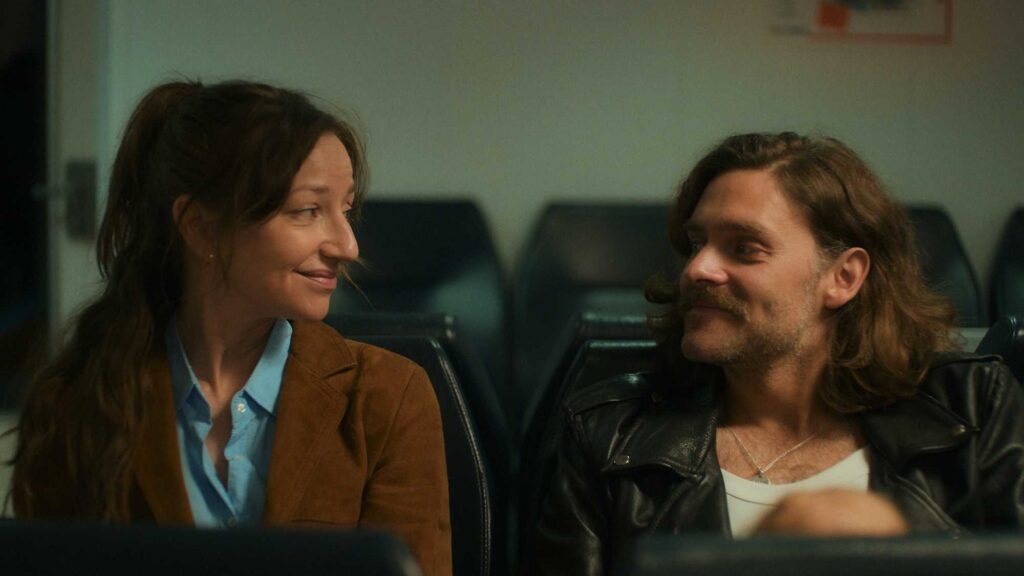
Every arthouse cliche in the book is present through this one and yet it remains watchable the entire time despite being at least half an hour too long. I weirdly felt better about this, knowing it’s part of a trilogy and that I’ll be seeing the second of three in a couple of day’s time. It felt like an unfinished work.
Josiah Morgan
The Love that Remains (2025)
Directed by Hlynur Pálmason
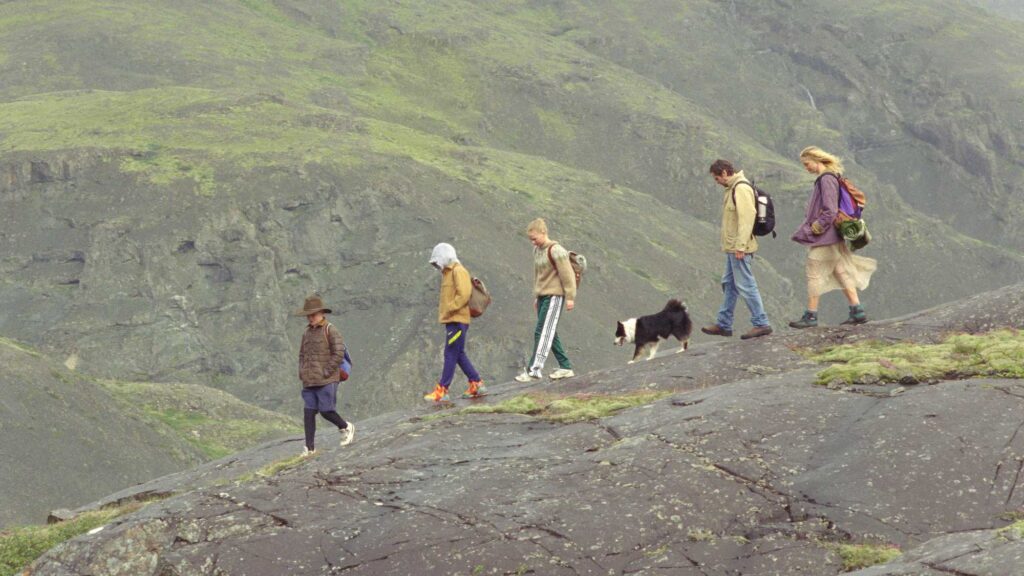
The best film I’ve seen so far at NZIFF is this gorgeous Icelandic film about the failure to protect life in all its forms, utilising a divorce as a central locus to explore humanity’s failure to think about ecologies both spiritual and material. A clear masterpiece. I saw this director’s previous film silently on a plane over the shoulder of the person in front of me and even that left an impression, so you can imagine how affected I was by this in all its glory on a cinema screen.
Josiah Morgan
Lurker (2025)
Directed by Alex Russell
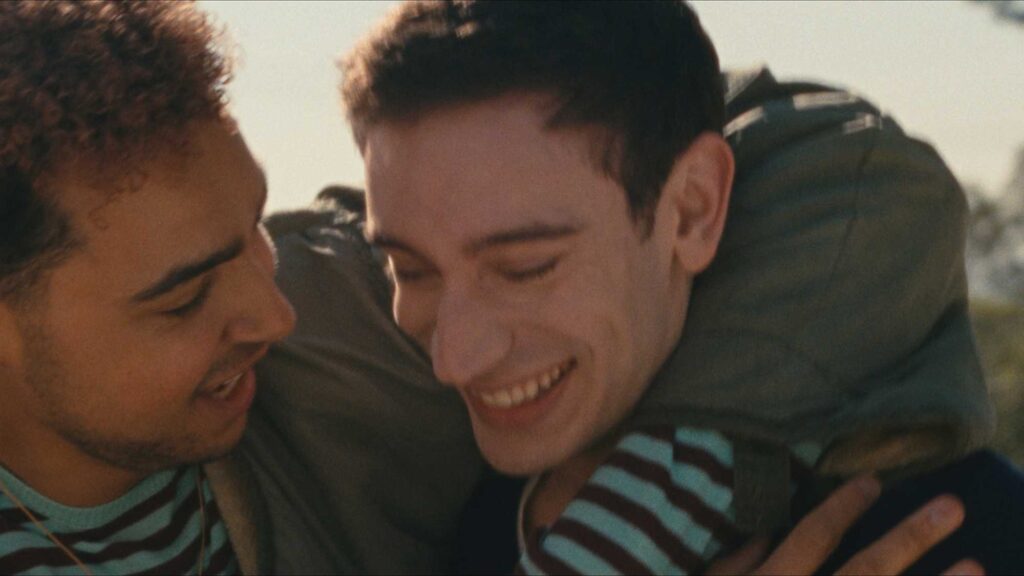
Previous credits for Russell include directing a Zack Fox music video, the screenplay for a BROCKHAMPTON short film and as a producer on The Bear. I knew all of this two minutes before watching this film, which I did on a whim, and I am glad I did because it felt like worlds colliding. Lurker is different from films and shows like it, Saltburn, The Idol and Hurry Up Tomorrow, because Lurker is good (sorry The Weeknd).
Jordan Irvine
The Mastermind (2025)
Directed by Kelly Reichardt
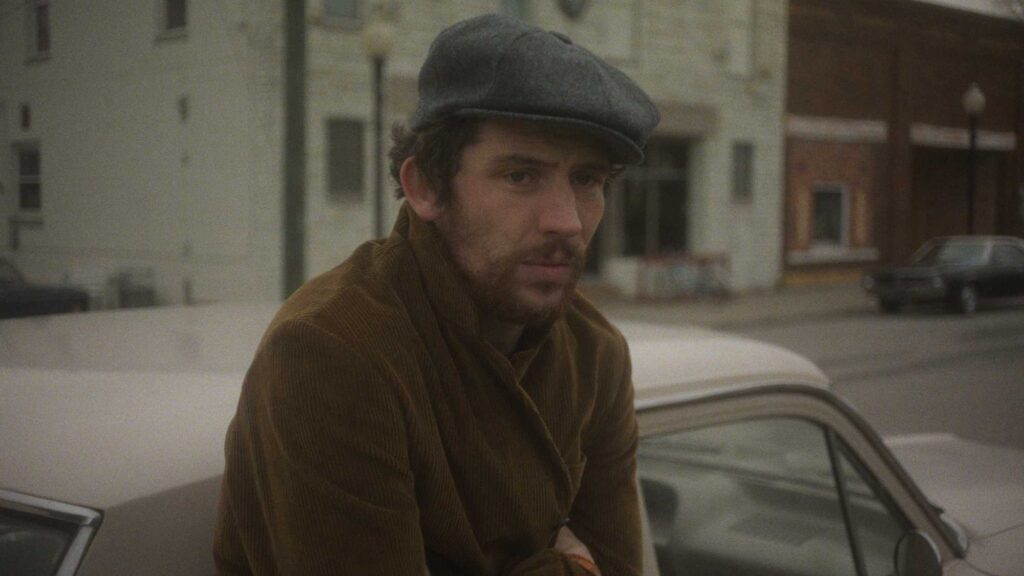
Kelly Reichardt’s latest, The Mastermind, subverts and twists the heist subgenre as she reimagines it in the context of her slow cinema gaze. Some will still find this slow but the pace is different here. This feels like a wonky sprint compared to her usual films that operate at the pace of a turtle’s stroll. It features a chaotic jazz score, good cinematography, quite a few laughs and commentary here about America in the 1970s. So yes, the film works at times but it feels like some aspects of her usual thoughtful character studies are traded off here and this film doesn’t offer much there. Josh O’Connor is good, but there’s still not much offered for him and the cast to shine, the supporting cast feel flat. It’s her ‘most accessible’ film but not Reichardt’s best or worst either.
Zianna Ruiha
Misericordia (2024)
Directed by Alain Guiraudie
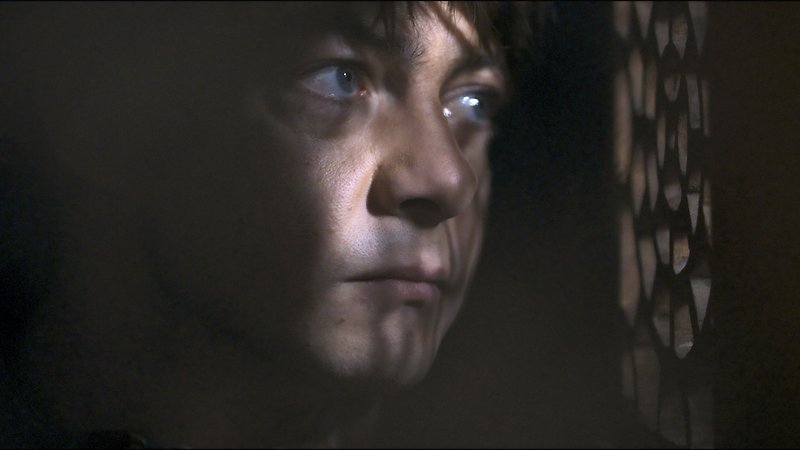
Sooooo watchable, sooooooo gay, awesome movie in which guilt is implied, explicit, and non-negotiable. I suspect this aptly translates to a straight audience too which is awesome – I’ve never seen a gay movie establish so many of the rules of gay ontology so quickly before.
Josiah Morgan
The Mysterious Gaze of the Flamingo (2025)
Directed by Diego Céspedes
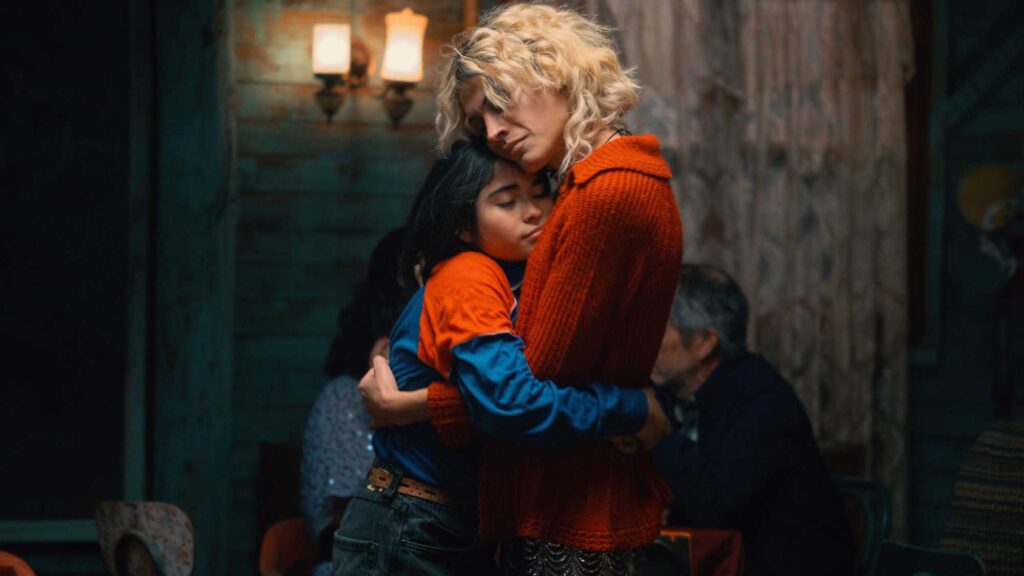
The Mysterious Gaze of the Flamingo is a bit more straightforward than the write-up suggests, but it’s still worth a watch. It doesn’t pull punches on complicated characters or emotional devastation, with the latter potentially erring towards the gratuitous in one scene midway through the film. Still, for a take on AIDS amongst a transvestite community in the 80s, it’s not focused solely on suffering. There is camp and there is laughter, and there is a community of transvestites fighting back and finding love.
Malory Campbell
Notes from a Fish (2025)
Directed by Tom Levesque, Romy Hooper
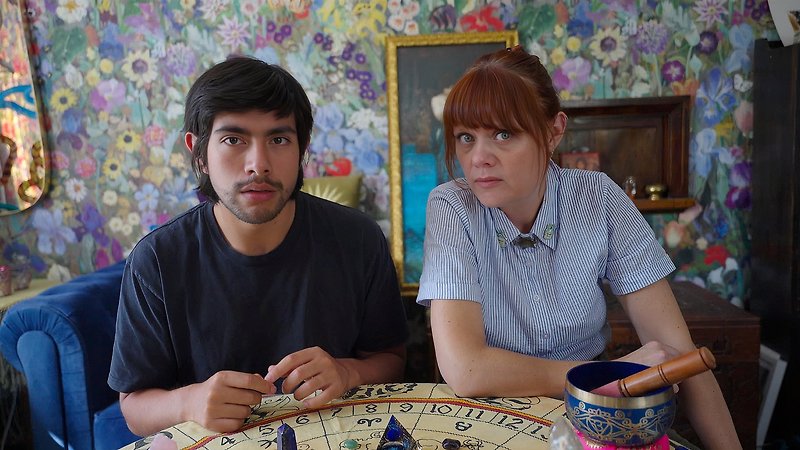
Notes from a Fish builds on the last few decades of Aotearoa indie cinema. It’s charming and comedic and a bit cringe in a comfortable way. At times it feels unsure whether it wants to be set in New Zealand or not, and I could write an essay about the inaccuracies of the publishing industry, but Emilio Mancilla and Romy Hooper have great chemistry so I’ll let it go.
Damien Levi
OBEX (2025)
Directed by Albert Birney
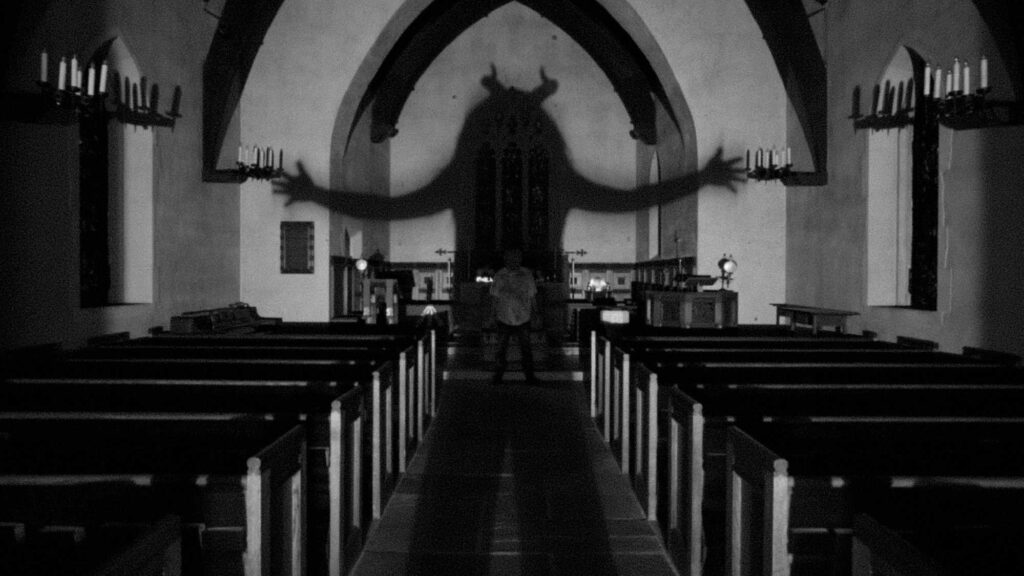
OBEX is a film that does not need to be seen. It adds nothing new or interesting to cinematic canon, but instead is a shallow rip from David Lynch’s Eraserhead with the added indignity of the unfunny visual gags and a boring plot. Genuinely, it feels shameful to have thought it could have been an interesting take on nostalgia and now-defunct technologies.
Malory Campbell
Plainclothes (2025)
Directed by Carmen Emmi
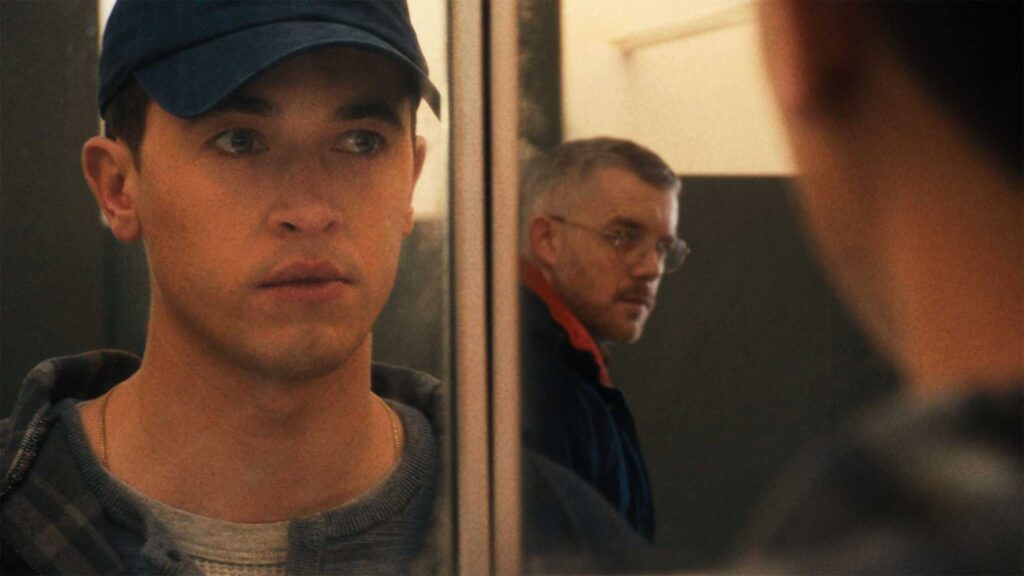
Carmen Emmi’s directorial debut is a unique approach in choosing style over substance, but its stylish presence gives the film so much of its substance. With a nonlinear narrative that blurs together just as memories do, Plainclothes stars Tom Blyth as Lucas, a closeted and repressed police officer. It’s shot with a grainy aesthetic that features characters and moments filmed in a style reminiscent of 90s security footage and family VHS tapes. While it won’t be the first or last film to explore repressed sexuality, it’s an interesting take on the repression and surveillance of queer identities.
Plainclothes explores the surveillance of queer men in the 90s with Lucas luring other gay men into criminal charges for his work, but also explores how Lucas is constantly living in a state of surveillance by policing his own queerness and surveilling himself in all spheres of his life. We mainly see Lucas in his work and family environments, which struck me with how the visuals of this film flutter between making you think of footage a court would use to prove a crime, but also the family recorded memories a loved one would capture with a handheld camcorder and rewind through. These aesthetic choices appear the most when Lucas is overstimulated or having a panic attack, reminding us of the surveillance he’s living in, putting himself under and what’s at stake.
Emmi has done a perfect job of capturing a panic attack and translating it to film. To me this felt like a 90 minute long panic attack, a sentiment the audience seemed to share. The scene in the church also induced the loudest collective audience gasps I’ve ever heard in a cinema. With how this film uses the ideas of memory, and how trendy 90s aesthetics are, it’s hard not to think about nostalgia and the costs of it—especially when seeing this style and the themes reflecting the collective harm the gay community faced in the 90s. Nostalgia picks and chooses what’s worth remembering and coveting, here I wonder if Emmi is asking the audience if it’s worth it?
Zianna Ruiha
Promised Sky (2025)
Directed by Erige Sehiri
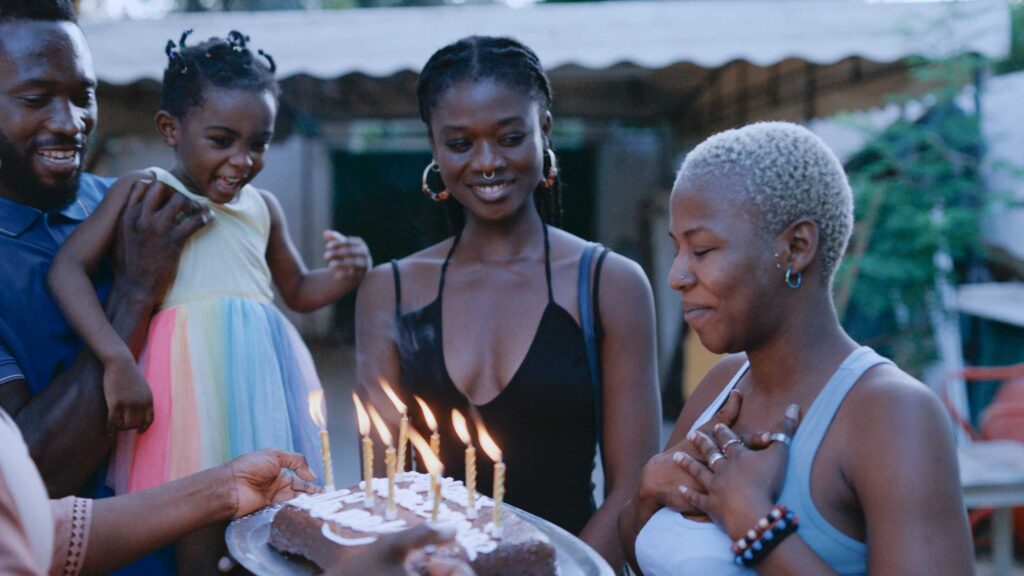
Promised Sky focuses on the connection, community and inner lives of three women living in Tunisia in different migrant statuses, showing how ingrained racism and colourism are in migrant policies and policing regardless of visa status. There’s beautiful cinematography here and each of these characters are performed brilliantly, All We Imagine as Light is a stronger film but I can see the same people enjoying this too.
Zianna Ruiha
Put Your Soul on Your Hand and Walk (2024)
Directed by Sepideh Farsi
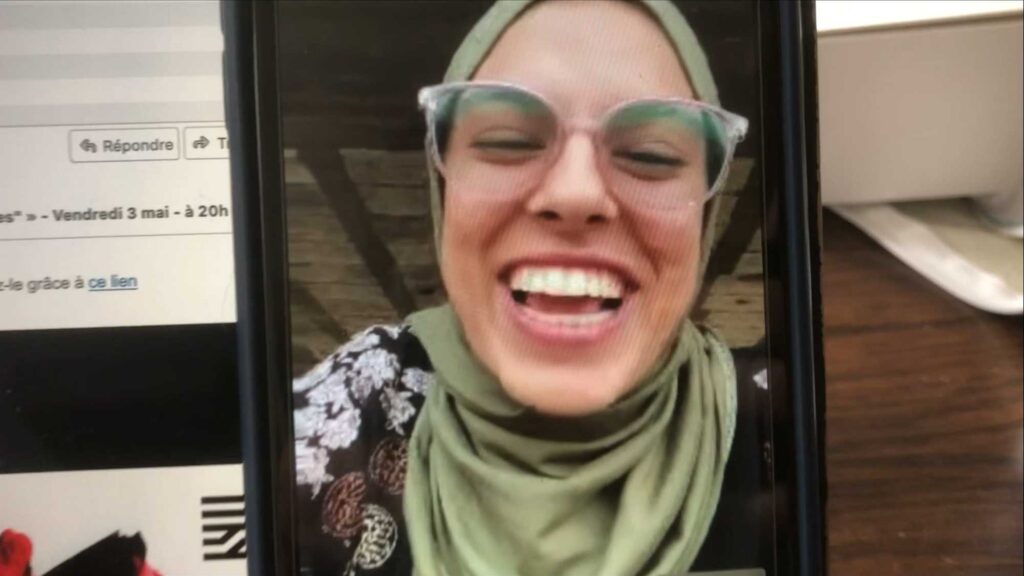
Beautifully-crafted documentary following the only thing I still think about every day at this point, that is, the ongoing genocide in Palestine.
Josiah Morgan
“I think my Gaza needs me.”
Is what Fatma Hassouna says in one of the several conversations we see her have with Sepideh Farsi. Fatma says this when asked if she wants to leave Gaza, it’s one of the most poignant sentences said in the film and Fatma says many. It’s clear that the need to document the genocide and settler colonialism destroying Palestinian lives and homes is what keeps Fatma in Gaza—a motive that’s shared by all the other journalists in Palestine risking their lives to document this or who have been martyred.
Put Your Soul on Your Hand and Walk is more about bearing witness than following a typical documentary’s motives or structure. It’s told over several video calls and spliced through with images and videos of Gaza taken by Fatma, a 24 year old photojournalist, who had dreamed of pursuing photography before taking this role on. Fatma is beyond talented, we hear her poetry and singing voice, and she is humanised in a time of media normalising and enabling the dehumanisation of Palestinians. Her gift with photography is obvious, as she captures both the destruction and the faces of the people that love the land of Palestine— those who refuse to, and cannot, abandon it, even if they wanted to.
Fatma was killed a day after her last phone call with Sepideh, who told her the film had been selected for Cannes, and a month before it premiered there. Fatma was excited at the prospect of attending the festival, she had so much optimism throughout their conversations. I’m watching this film just days after the targeted Israeli strikes killed the Al Jazaeera journalists Anas Al Shariff, Mohammed Qreiqeh, Ibrahim Zaher, and Mohammed Noufal. These are just four names of the nearly 270 journalists have been killed in Gaza by Israeli attacks since October 2023. 2024 was the deadliest year in history for journalists. This is a difficult and emotional watch but necessary viewing for us to understand the realities and grief of Palestine, to not let Palestinians just become numbers on our screens.
Zianna Ruiha
Resurrection (2025)
Directed by Bi Gan
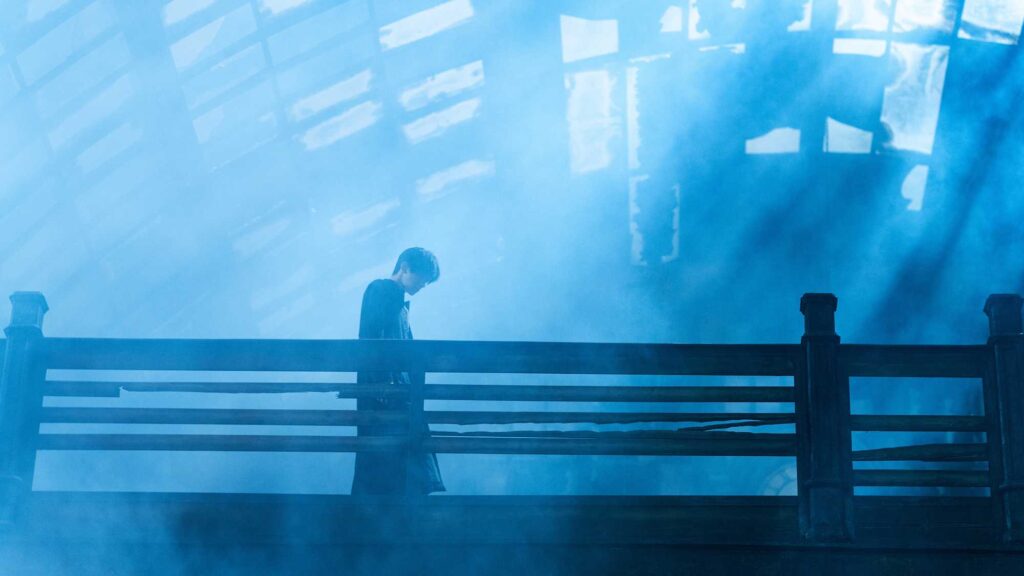
I’ve seen over five thousand movies and this is up there with the absolute most difficult of them. It’s also the best film of the year. Bi Gan’s transformative genre-hopping film audibly challenged most of my audience and can be punishing at times. It’s not a eulogy but a manifesto for the future of an art form. The first film truly fitting for our apocalyptic times. A different world is imaginable.
Josiah Morgan
Resurrection is a cinematic epic, a love letter to cinema and its evolution in the structure of an existential odyssey, with chapters that correspond to the different senses fitted with different genres and visual styles. It seems to be a divisive work, which surprises me, and there were quite a few walkouts in my screening. Despite being a pretty packed Embassy screening, the audience seemed hesitant when it came for the usual round of applause.
Regardless, it was a real NZIFF highlight for me. It’s one of the most visually and technically impressive films I’ve ever seen—one of those films that’s just a real treat to look at. Brilliant costuming, gorgeous, sprawling sets and such impressive scenes. There’s a fight in a room of mirrors that’s gorgeous to look at and this has the greatest 35-minute-long shot of all time? I’m still so mesmerised by that shot and the skill of everyone involved to pull that off, it was so effective, gorgeous to look at, and a really touching story.
Dong Jinsong, the cinematographer, deserves every award out there, honestly. I’m telling everyone and their cinephile dog to watch it, so watch it! It really asserts Bi Gan as a visionary filmmaker with such a distinct style. Each of these chapters were so unique and with countless personal interpretations. Even if you’re not sure what’s going on, it’s worth the ride just to look at it and experience this journey through senses and time. This is the film of the year!
Zianna Ruiha
Resurrections is a big, beautiful movie that pitches itself across cinematic history in the 20th century. It’s self aware without being cloying, and it pulls on a variety of interesting references without being overly derivative. It feels a little disjointed at times, split as it is between five vignettes, but it falls together perfectly at the end.
Malory Campbell
The Secret Agent (2025)
Directed by Kleber Mendonça Filho
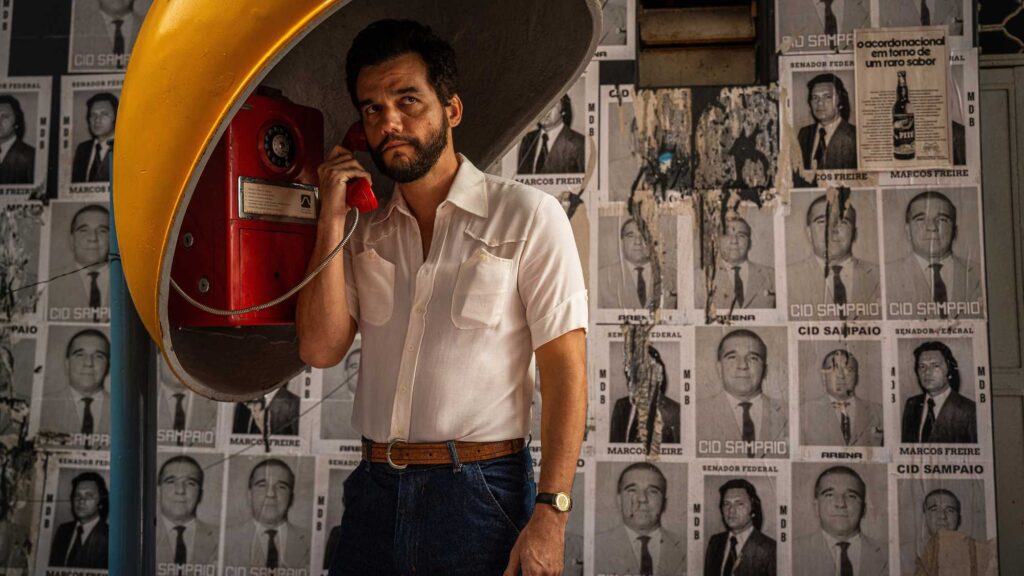
This film is brilliant in so many ways and goes above and beyond your usual political thriller and drama. I had so much fun with this and who knew a drama-thriller could be so witty? Wagner Moura gives a brilliant Oscar worthy performance as Marcelo and is surrounded by a great ensemble of characters, especially Tânia Maria, who steals every scene as Dona Sebastiana and is so heartwarming. This film’s visuals immediately won me over. It’s visually lush with gorgeous cinematography and a talented colourist, making the film feel so authentic to its time, and cinema of the 70s.
The politics of Brazil’s Military Regime are felt throughout and also present allegorically with the running gag of the ‘hairy leg’ that constantly had our cinema laughing. But the presence of this urban legend adds so much when learning the ‘hairy leg’ was invented as code by a journalist in order to talk about police and military violence without being blocked by censorship. It’s a clever film and while I found the present-day plotline and ending to be less immersive and took me out of the film, I still rate this pretty highly!
Zianna Ruiha
Sex (2024)
Directed by Dag Johan Haugerud
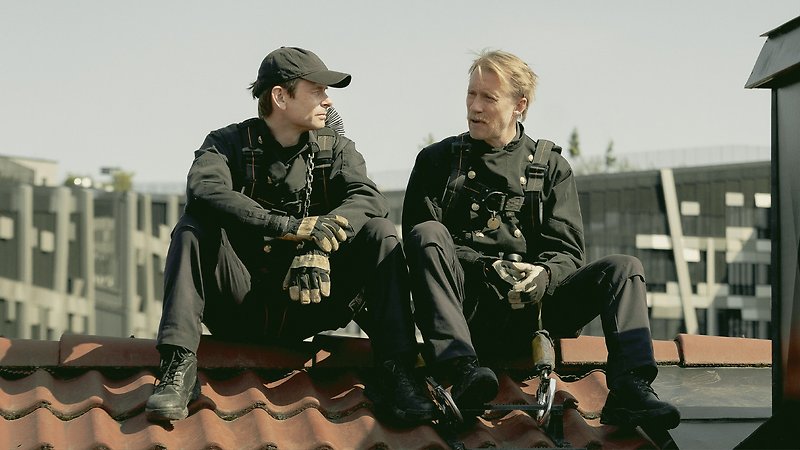
If Love was a little undercooked, Sex is its disciplined twin, a very, very tight and well-crafted film with maybe the ending of the year. More or less a movie about how ridiculous people who live in heteroesxual reality are.
Josiah Morgan
The Shrouds (2024)
Directed by David Cronenberg
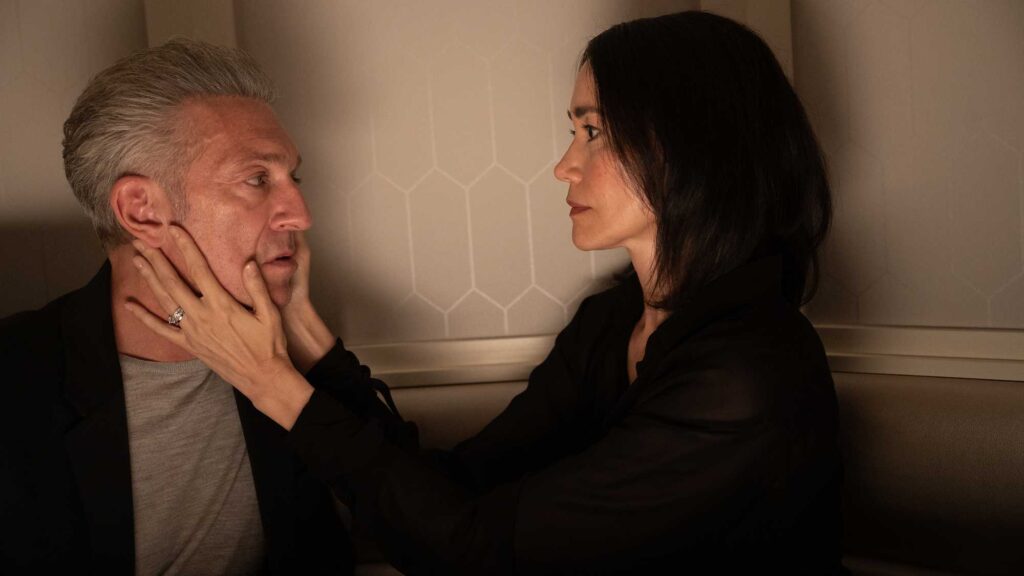
David Cronenberg’s late-career prankster movie in which it’s impossible to process grief as anything but an overarching conspiracy was a total flop when it premiered at Cannes in 2024, and it was a total flop with my NZIFF audience too, but I was cackling in my seat. The only artist so far to seriously tap into what’s going on with the AI girlfriend trend??
Josiah Morgan
Sirât (2025)
Directed by Oliver Laxe
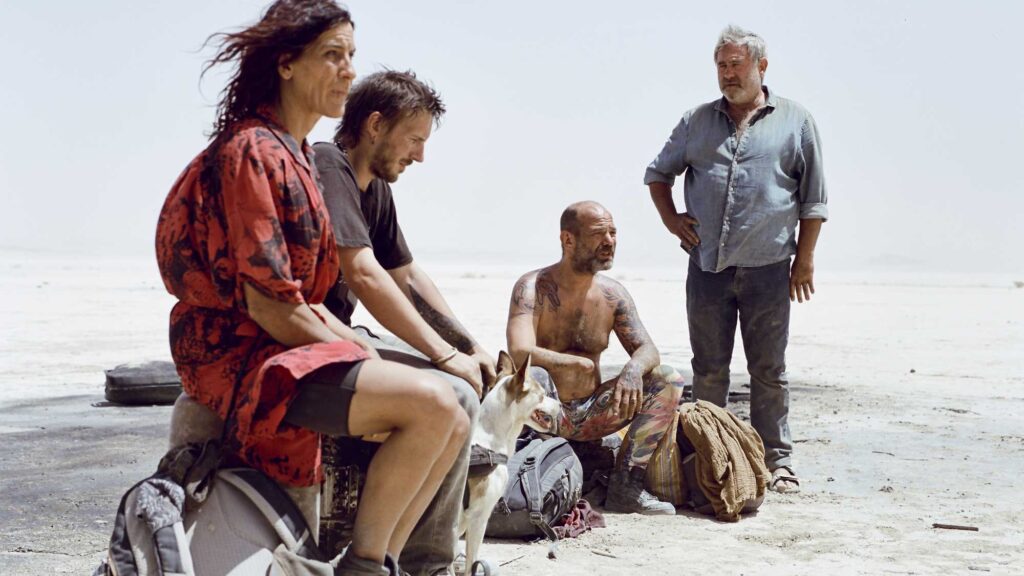
My audience were audibly frustrated by this film, with lots of restless mutters, comments that it should ‘hurry up already’ and a general sense of discontent—even among my friends!—when leaving the theatre. I, on the other hand, thought this Oliver Laxe’s best film yet. A very mature vanishing act in which both genre and interest get thrown out the window by the invisible hand of the contemporary moment.
Josiah Morgan
Sorry, Baby (2025)
Directed by Eva Victor
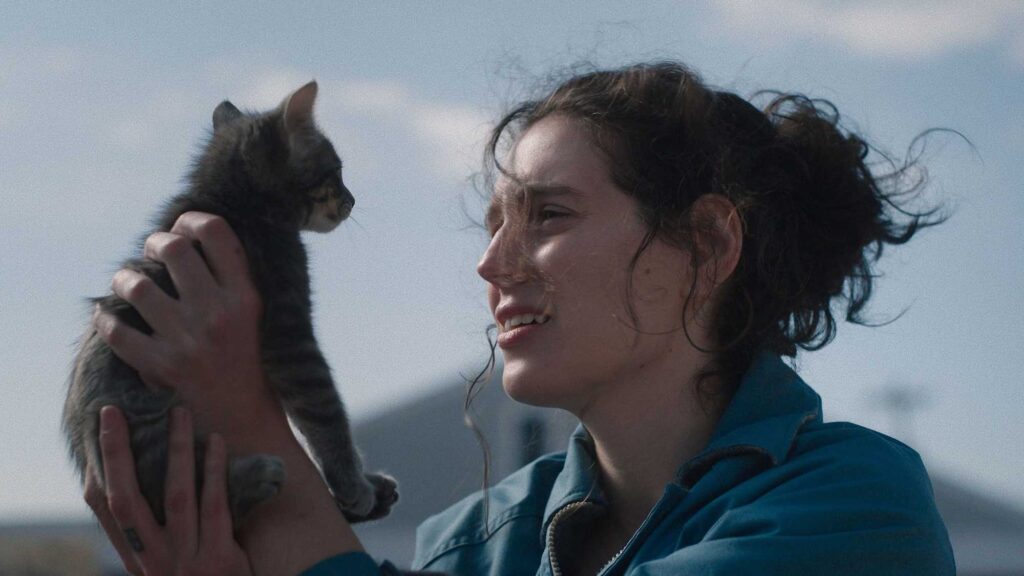
Sorry, Baby is a film that you put off watching all year, just to see it by yourself alone on New Year’s Eve. You miss the countdown and cry but feel seen. Absolutely gorgeous and human film. The best this year.
Jordan Irvine
Sorry, Baby is a tender hug of a film for those who have experienced trauma. It’s realistic and comforting in showing how trauma works in a nonlinear way and how it finds a way to sit in on or impact so many different corners of our life. I’m really glad I got to watch this film, it’s a special and important one. It balances tone so well with walking the fine line between humour and tears (I lost track of how many times I laughed and cried) but never undercuts or dismisses the other. It’s a line not many filmmakers could toe so well, especially not as a directorial debut that they’re starring in. Thank you, Eva Victor, we all say in unison!
Zianna Ruiha
Sound of Falling (2025)
Directed by Mascha Schilinski
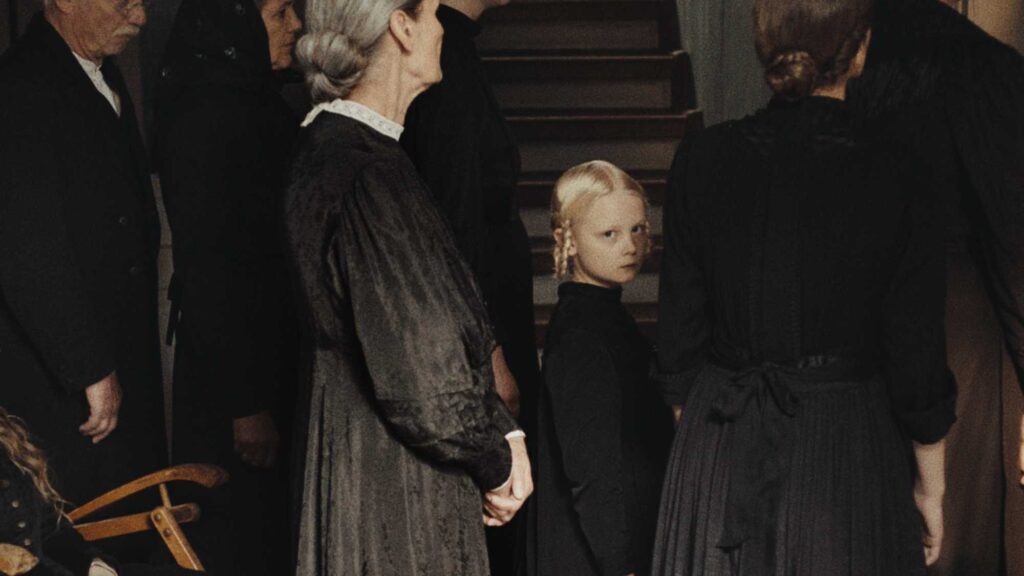
The male gaze usually dominates cinema but here, the female and ghost gaze become synonymous in an ethereal dreamlike web of moments and memories of four generations of women. Not quite your traditional ghost story, as it’s not the supernatural terrorising but rather the horror created by men and endured by women throughout time. The camera sits in shadows and in keyholes, feeling like what the projectionist would play if a ghost could show you their memories from life and death, it’s impressive filmmaking visually and sonically. But don’t expect a lot of depth outside of this, I don’t feel like much else is offered here, these women and girls aren’t fleshed out and the film focuses primarily on their pain and if death is a respite or not.
Zianna Ruiha
The Texas Chainsaw Massacre (1974)
Directed by Tobe Hooper
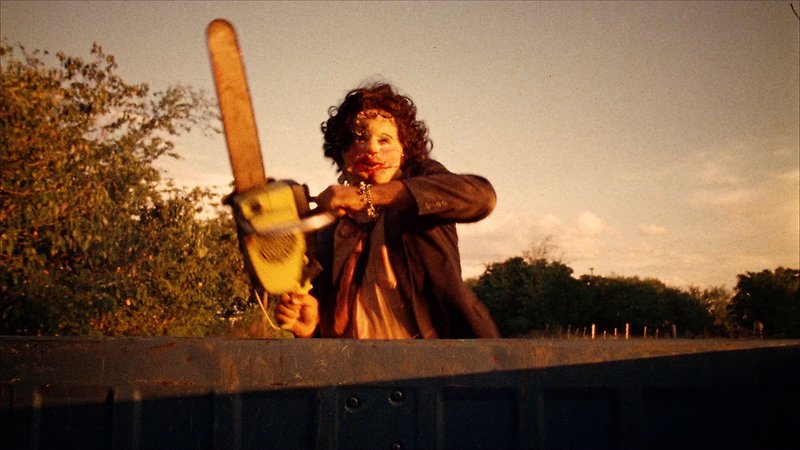
It was a stroke of genius to program this film at a time in New Zealand history where the economy is tanking, nobody can afford meat, farmers are one perceived enemy of the urban public and rural farmers are at war with what’s perceived as an invading left-wing narrative, even though that left-wing narrative is carried by those with a greater claim to whakapapa than the rural industrialists.
Josiah Morgan
This time around, my audience laughed a lot harder at the film than they did the first time around, which might be a side effect of the 4D experience we had due to someone smuggling in fried chicken to this screening and eating it voraciously throughout. Strange choice. This is like, maybe the most vegetarian a movie has ever been. Special shout-out to the guy in the row behind me who ruined the final cut to black by exclaiming “too loud!” as soon as the movie cut to its final, extraordinary, deafening silence.
Josiah Morgan (again, he watched it twice)
oh we laughed and laughed and laughed
Jordan Irvine
oh how we laughed
at the New Zealand International Film Festivals 4k Restoration screening of The Texas Chainsaw Massacre
how the macabre becomes mundane
how the sound of a drink bottle being dropped (twice) makes the girl in front of me jump
“jesus christ” exclaimed someone when he shut a metal door
and not when he banged a guy on the head
dead silence before dinner didn’t last
as the
doof doof doof
of Brew Bar kicked in
giggled as he washed windows
chortled at having your own knife
chuckled as he sent them to their death
TOITŪ Visual Sovereignty (2025)
Directed by Chelsea Winstanley
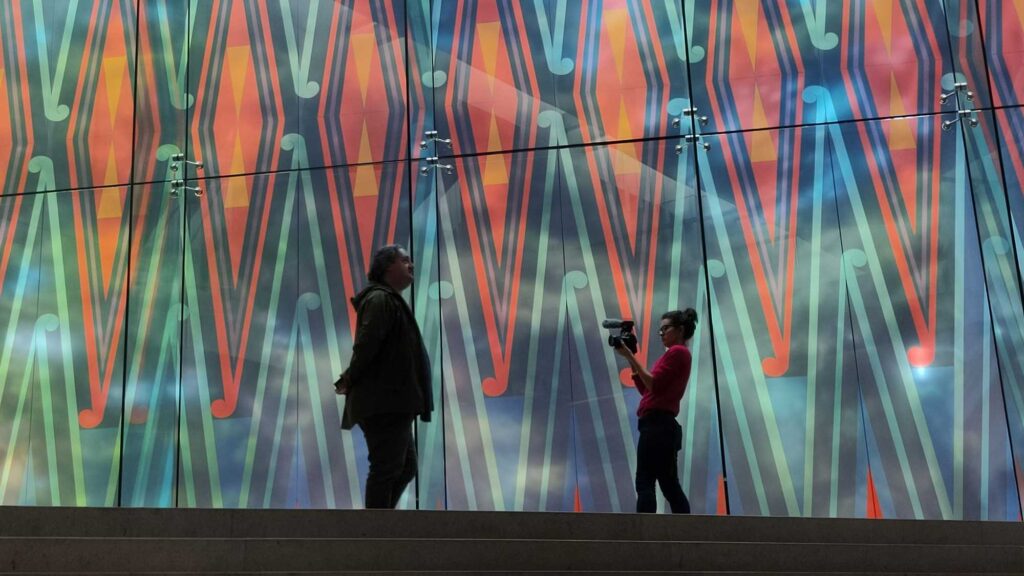
Emotionally shattering documentary centred on Auckland Art Gallery that implicitly questions the power relations between all institutions and Māori in Aotearoa today. Vital. A must for every citizen in New Zealand.
Josiah Morgan
Trenque Lauquen (2022)
Directed by Laura Citarella
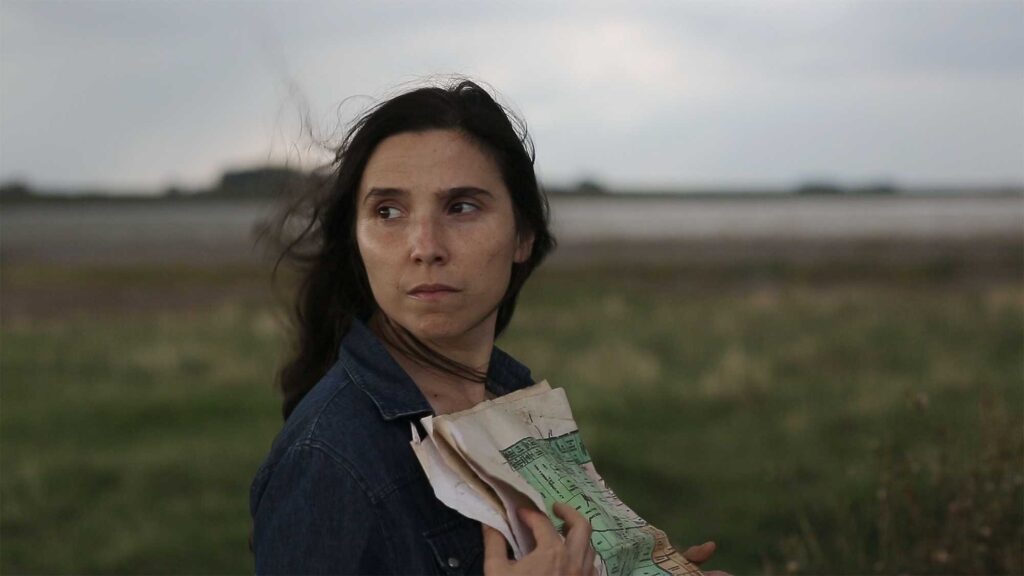
Laura Citarella’s sprawling 260-minute epic blurs the lines of reality and fiction as she engages in a subversive conversation with the mystery genre, mainly the missing woman trope. The stories that dominate this canon are usually told by male filmmakers and will feature violence against women, but our protagonist, Laura, defies this with her voice and autonomy. We see the men in her life chase what they think the mystery is, their male gaze is felt but it’s redirected into more by Laura with her words and metaphorical actions. Laura fixates on and shares the stories of women who have been deemed mysteries and even disappear from the narrative, it’s only natural that Laura would become one of these women herself. Laura’s voice drives the unravelling of countless mysteries as she captures the feeling of discovering a secret that you’re the only one in on. We’re left with more questions than answers but it’s a cyclical story that ends with affirming Laura’s autonomy over a voyeuristic gaze.
Zianna Ruiha
Twinless (2025)
Directed by James Sweeney
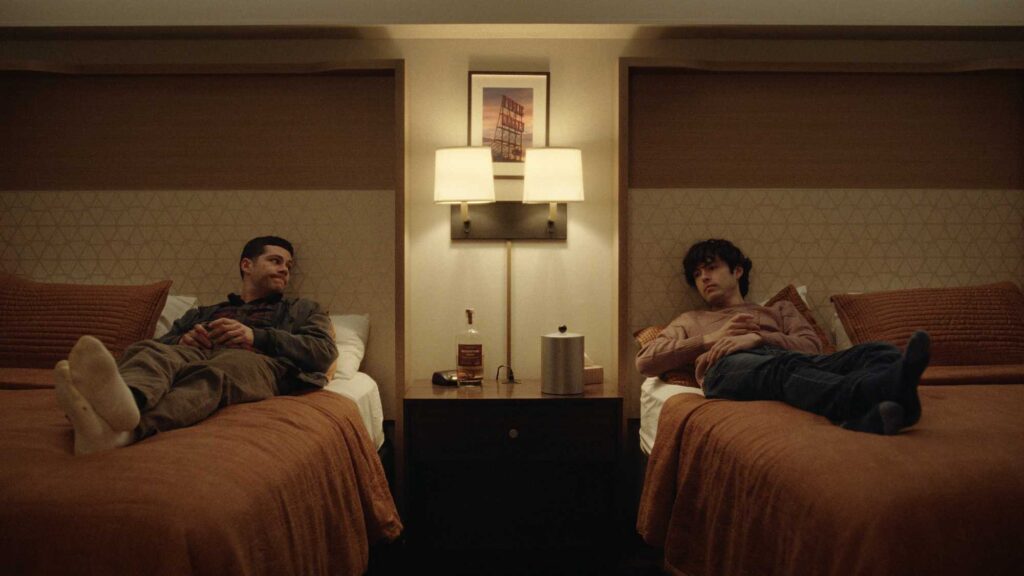
Now I know why I get carsick… Extremely funny with some heartbreaking moments, my screening was in an endless stream of laughter. From another filmmaker Twinless could feel tired, but with James Sweeney it never does, even in its more predictable moments, the writing, direction, and cast’s performances are all perfect and sweetly tender. Easily one of the funniest films of 2025!
Zianna Ruiha
Two Prosecutors (2025)
Directed by Sergei Loznitsa
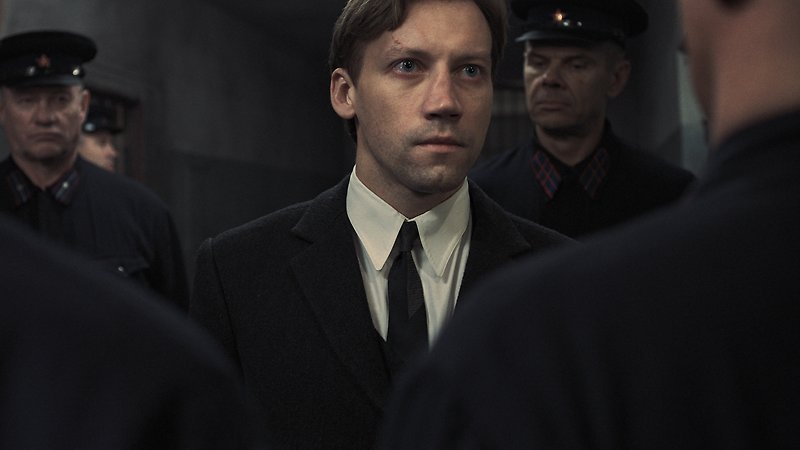
Sergei Loznitsa’s steely and borderline unwatchable drama ascends to steep emotional heights with a rigid aesthetic approach. Highly recommended but not an easy film to stomach.
Josiah Morgan
Urchin (2025)
Directed by Harris Dickinson
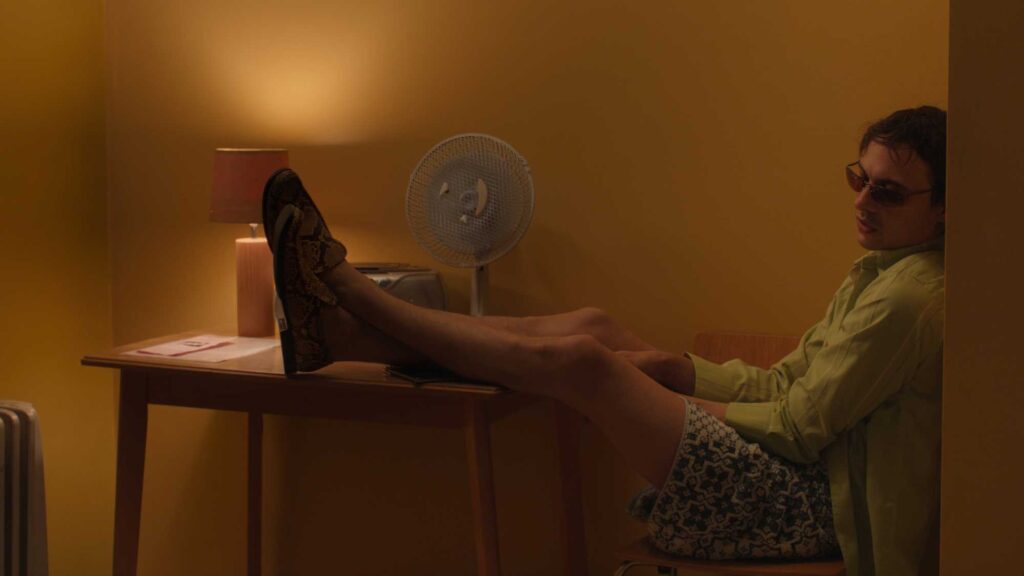
Empathetic and devastating. We can see Harris Dickinson’s visual identity as a filmmaker being explored and developed here with interesting shots and use of lighting, I enjoyed how nature was incorporated, those shots often reminded me of Agnès Varda. Urchin shows the cyclical nature of homelessness and addiction, and failings of social services and governmental agencies, it’s a solid debut from Dickinson that shows he has promise behind the camera too but this sticks to the superficial and never goes deeper than it could.
Zianna Ruiha
The Weed Eaters (2025)
Directed by Callum Devlin
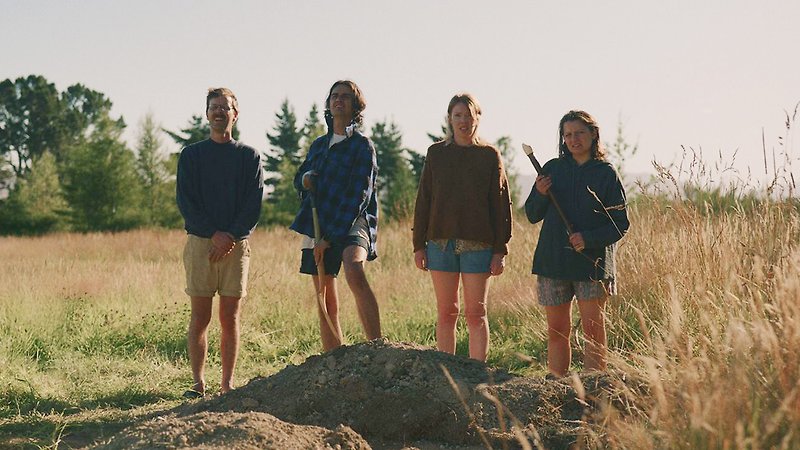
This easily takes the title for the prettiest to look at horror comedy to ever come from Aotearoa with such fabulous cinematography! The Weed Eaters is rich in ‘Kiwi humour’, especially the cringey kind. Overall, Callum Devlin’s script and direction focuses on, and succeeds, more in the comedy than it does in the horror or genre mesh. Honestly, it’s an inspired and chaotic premise that the world definitely needed. After seeing this ,I think the material here would’ve worked better with the runtime and structure of a short, but our packed Embassy Theatre audience still had a lot of fun!
Zianna Ruiha
The Weed Eaters is a great movie. It’s funny without being forced and insightful without being didactic or moralistic. It also has an absolutely incredible score—there’s a couple of pop numbers in there, as you might expect, but the instrumentals really take off when the action picks up.
Malory Campbell
This team deliver one of the best narrative New Zealand films in years. Heaps of fun, performances pitched at a perfect level and Finnius Teppett’s screenplay is gold. Lasted about twenty minutes too long but otherwise, no notes. Destined to be an NZ classic.
Josian Morgan
Went Up the Hill (2024)
Directed by Samuel Van Grinsven
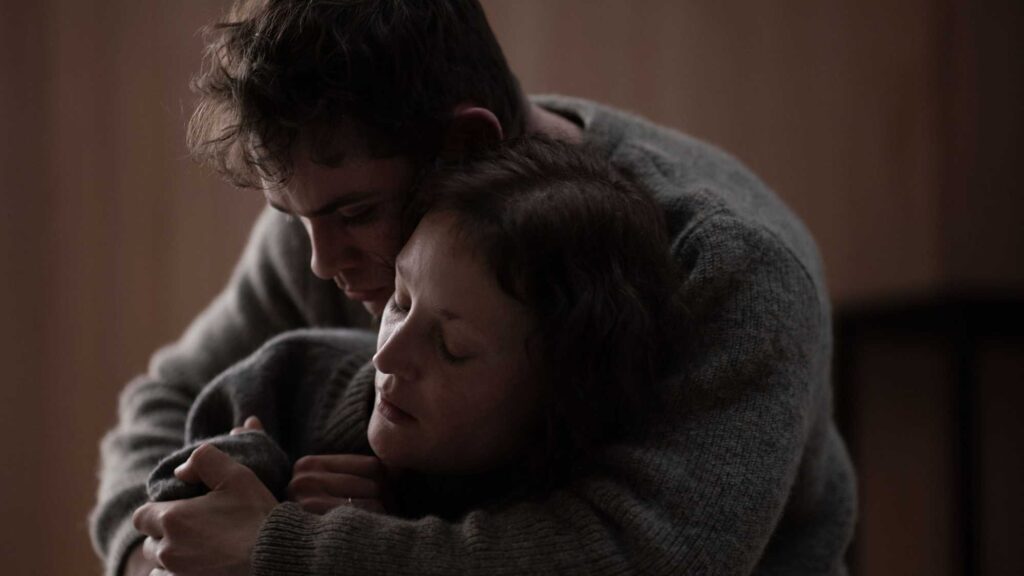
Samuel Van Grinsven’s bleak, sticky, family-grief centred arthouse horror drama is unique in the Aotearoa landscape for its rigid formalist approach—monochromatic tones and subdued performances. The Q&A with Grinsven after was excellent and it’s a film that works in theory for me. In practise, it’s just a little too monotonous, a little too long, and tells us just a little too much.
Josiah Morgan
Werckmeister Harmonies (2000)
Directed by Béla Tarr, Ágnes Hranitzky
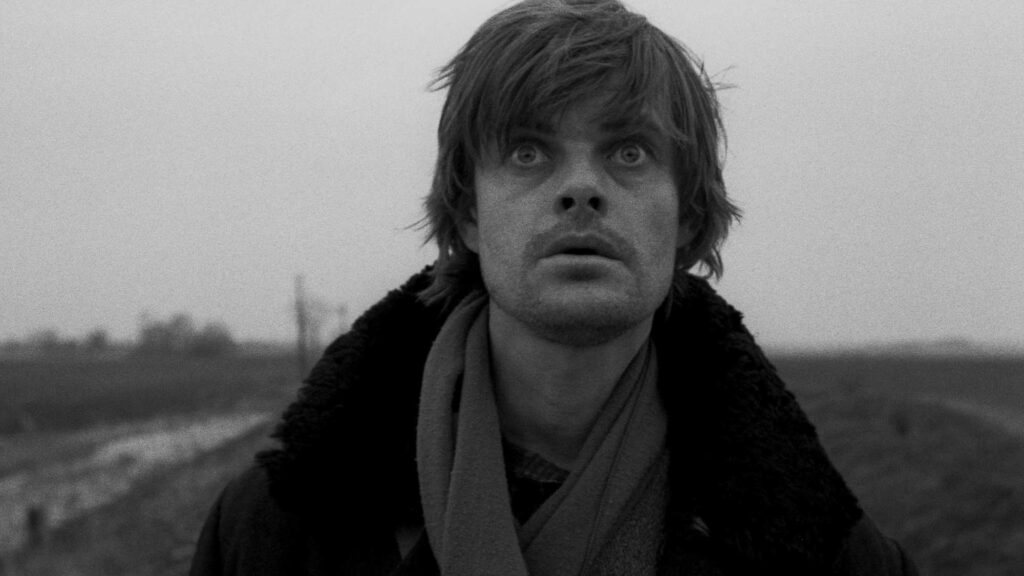
More or less completely obviously one of the best films of all time. From its pitch perfect and literally transporting opening scene through every tracking shot, Tarr is unparalleled. Seeing this in a cinema was like seeing God.
Josiah Morgan

